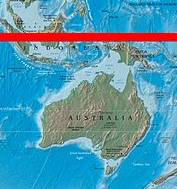June 09, 2017
|
Friday words, 2017-06-09
|
4037 hit(s)
As I've noted before, in my work I encounter new-to-me technical vocabulary all the time, and I don't generally note it here. But now and then I'll run across something that's kind of delightful. Yesterday I ran across the term embarrassingly parallel, which is, contrary to what one might think, an actual technical term.
But work aside, let's look at a couple of, you know, normal new-to-me words today. The first is stan, both a noun and a verb, which I got from the Oxford Dictionary blog. (I will note that my heretofore unfamiliarity with this term is yet more evidence that I am increasingly out of touch with popular culture.) Stan is a term for someone who is a big fan of a band, musician, or other cultural figure. It can also function as a verb; people say that they stan an artist:
The blog credits the word to Eminem, and suggests that it could combine stalker and fan, capturing a tinge of obsessiveness. But the examples I find (e.g. on Twitter) don't have the negative vibe of stalking, and instead suggest just, you know, great admiration.
Another new word for me is chapeaugraphy, which refers to a pretty danged narrow niche of performance/clowning art: doing clever and entertaining things with a hat. (Technically, with a piece of round felt with a hole in it.) This is best explained via video:
(A minute or so of this should suffice to explain.[1])
I think what interests me about this is primarily the tradition of it. As with other aspects of clowning, chapeaugraphy emerges from the mists of previous centuries, and it always pleases me to think of people standing around at a marketplace in Paris or London in, say, Shakespeare's time, being entertained by many of the same antics that are still crowd-pleasers today. And hey, there's a special word for it.
 And just a quick note today about surprising etymology: where does the name Australia come from? (Latin majors are not eligible for this contest.) Once again we turn to the compass for our answer. In the era before today's perfect knowledge of geography (haha), there was a theory of a continent on the southern half of the globe that was provisionally named terra australis incognita, Latin for "unknown southern land." As people reached the various landmasses in the southern hemisphere, the name was used for those; in the early 1800s, the name Australia was suggested for and became used for what we now know as that country. And just a quick note today about surprising etymology: where does the name Australia come from? (Latin majors are not eligible for this contest.) Once again we turn to the compass for our answer. In the era before today's perfect knowledge of geography (haha), there was a theory of a continent on the southern half of the globe that was provisionally named terra australis incognita, Latin for "unknown southern land." As people reached the various landmasses in the southern hemisphere, the name was used for those; in the early 1800s, the name Australia was suggested for and became used for what we now know as that country.
Slightly weird note: it's often considered mock-worthy if people confuse Australia with Austria. There's not a direct etymological relationship; Australia is from australis ("south"), whereas Austria is from a Germanic word for "east," still evident even in English once someone points that out. But, but. It's possible that the Latin auster does ultimately derive from a word for east; related words might be orient and aurora. Douglas Harper has the deets.
Like this? Read all the Friday words.
|
 |
|

 |
|
